About How Many Art Songs Did Franz Schubert Write?
Schubert: 20 facts near the slap-up composer
During a career lasting less than xx years, Franz Schubert (1797-1828) produced a torrent of piece of work, including operas and symphonies; 600 songs; overtures and masses; string quartets, quintets and an octet; 20 piano sonatas; and some 50 choral works. Here are twenty essential facts about the great homo.
-
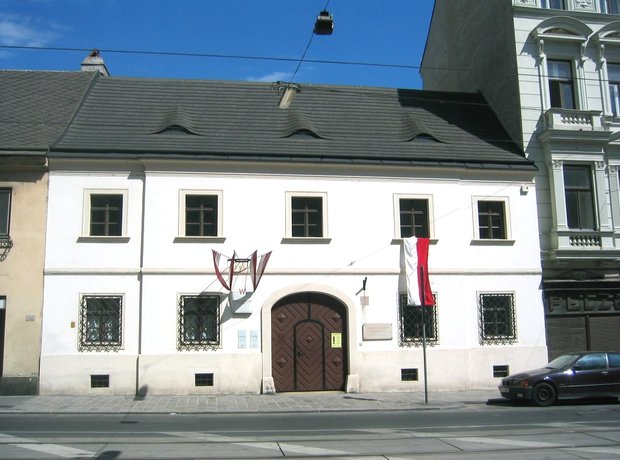
1. The house in Vienna where Schubert was born
Franz Peter Schubert was born well-nigh Vienna in January 1797. He was the 12th child of a Moravian schoolteacher, Franz, and his married woman, Elisabeth. Franz senior - who played cello - taught his son the rudiments of music. The business firm in which young Franz was built-in, pictured, was known as the Red Crayfish but is today 54 Nussdorfer Strasse in the ninth district of Vienna.
-
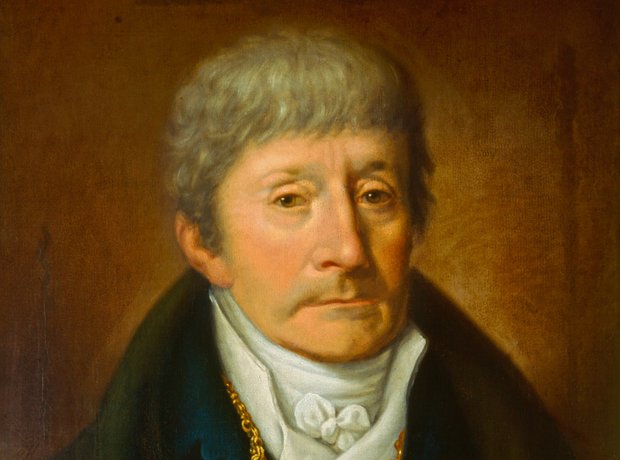
two. Antonio Salieri, composer and talent scout
The composer Salieri (he of not really murdering Mozart fame) talent-spotted the immature Franz when the boy was just seven. Franz was whisked off to the Imperial Seminary where he sang in the choir, played violin in the orchestra and learned musical theory from Salieri himself.
-
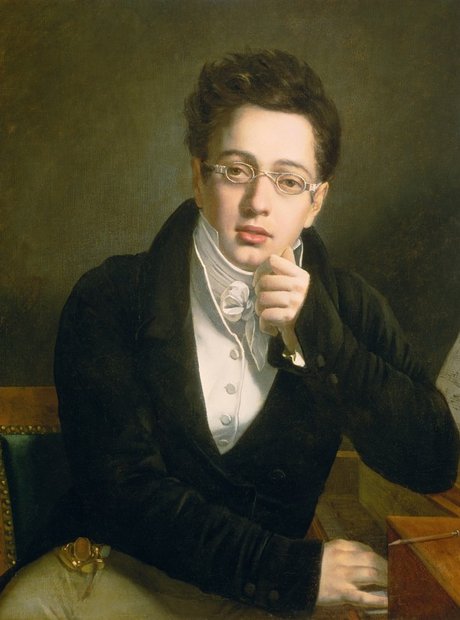
3. Franz Schubert, young composer
Salieri was a brilliant teacher and, under his direction, the youthful Schubert was composing his kickoff string quartets, songs, and piano pieces.
-
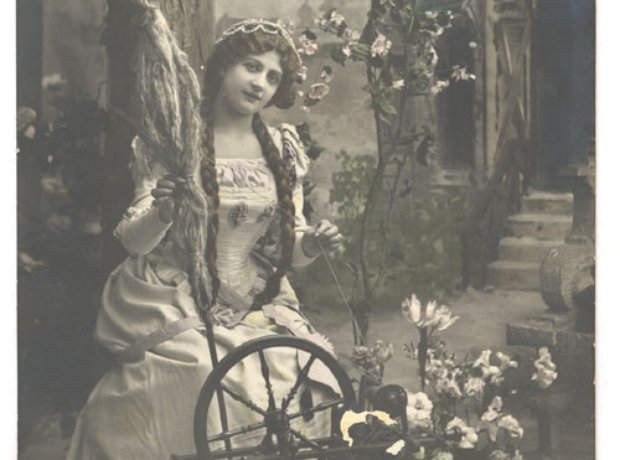
4. Schubert sets a text past Goethe
Schubert wrote his first masterpiece at 17 – a setting of Goethe's 'Gretchen am Spinnrade' (Gretchen at the Spinning Wheel). Already the composer was making the piano part an integral element of the song. The accompaniment mimics the revolving wheel, speeding up and slowing down in response to the text.
-
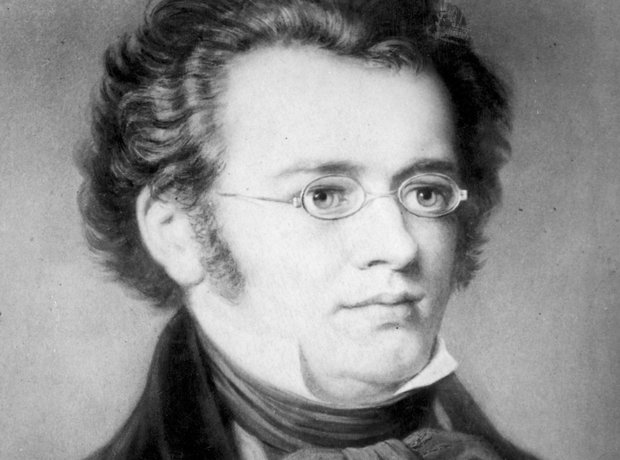
5. An outpouring of musical genius
In 1815 solitary, Schubert wrote more than twenty,000 bars of music, including ix church works, a symphony, and some 150 songs – including eight in one day in Oct 1815.
-
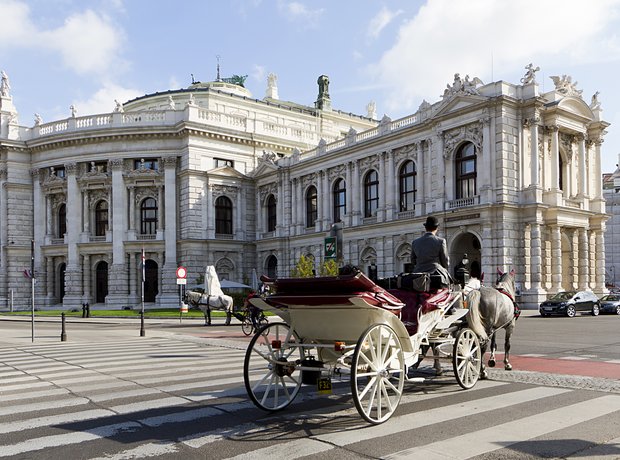
half-dozen. A selection between police force or music
As a nineteen-yr old in Vienna, Schubert began both a law degree and composing his Symphony No.v. This might well have been the piece of work that prompted the composer to drop out of studying law. It is the perfect piece for anyone who wants to go into his music – fresh, light, full of youthful exuberance and bursting with tunes.
-
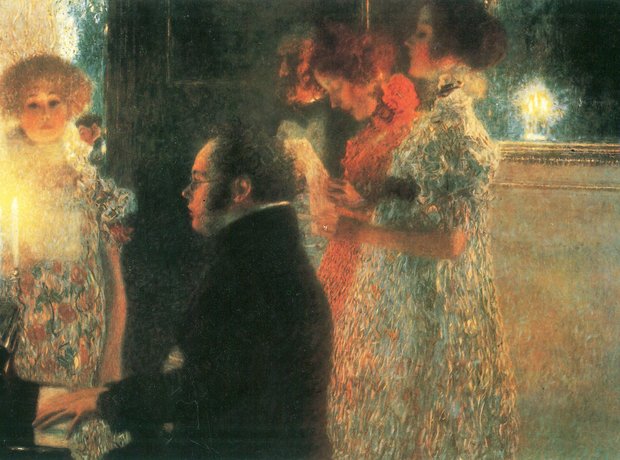
vii. Schubert's Schubertiads
Schubert enjoyed a good time and, in his day, he was famous for his musical parties known every bit 'Schubertiads' when he would gather with his friends and fans and showcase some of his latest songs. Sometimes they would go for a picnic or on a river trip.
-
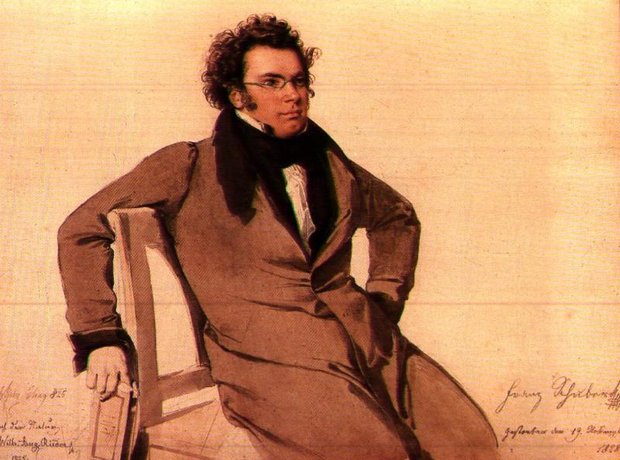
8. The Little Mushroom
Being only five foot one tall, Schubert'due south atomic frame – added to his rather plump body – earned him the nickname 'Schwammerl' (little mushroom).
-
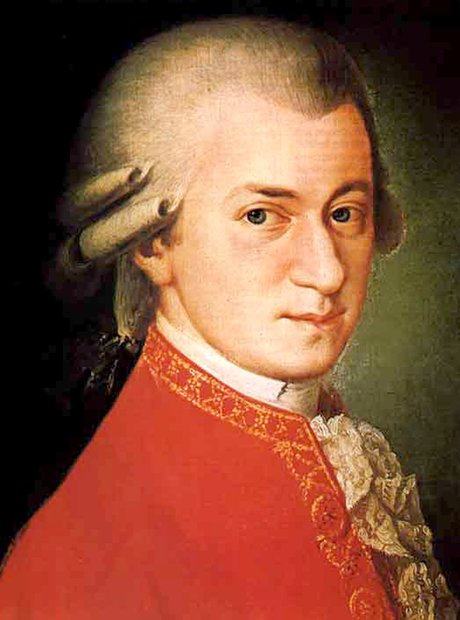
9. Immortal Mozart
Schubert made no secret of the fact that he was admittedly in beloved with Mozart's music. "O Mozart! immortal Mozart!" he wrote, "what countless impressions of a brighter, ameliorate life hast thou stamped upon our souls!"
-

10. The Trout Quintet
Schubert wrote his popular Trout Quintet when he was just 22. It got its proper name because the fourth movement is a ready of variations on an before Schubert song called, funnily enough, The Trout. The song was originally a alarm to young women confronting being 'caught' by 'angling' young men. But Schubert didn't set up the final lines of the poem, preferring to concentrate on evoking the prototype of the trout in water and the reaction to it beingness caught by a fisherman. Photo: David Cheskin/PA Wire
-
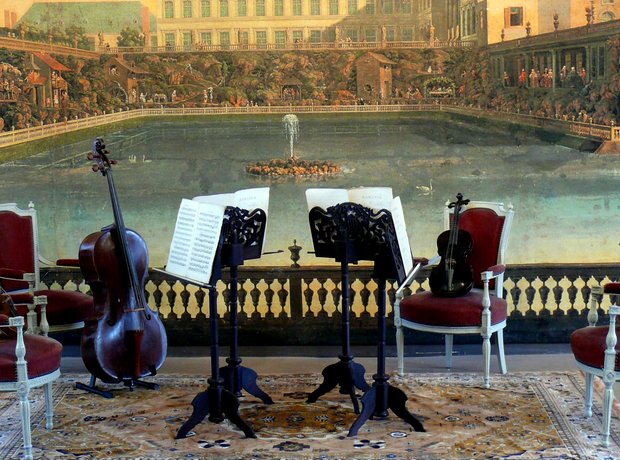
xi. The sound of things to come
Schubert'south sadder string quartets were a prelude to the passionate music of the coming Romantic era, the music of Brahms and even Richard Strauss.
-
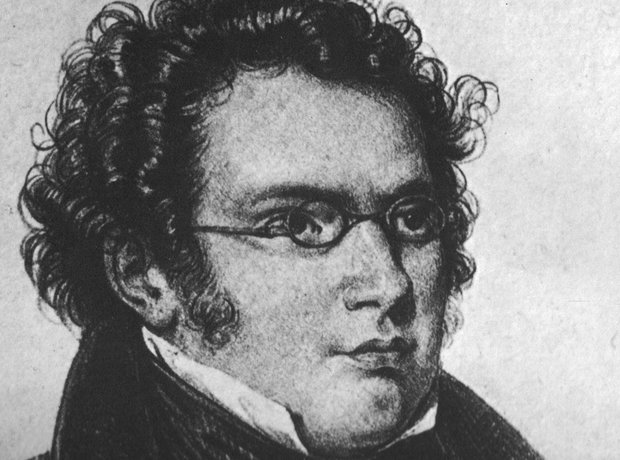
12. The mystery of the 'Unfinished' Symphony
Schubert'south Unfinished Symphony only came to light more iii decades after the composer's expiry when an old man claimed he had a work that Schubert had sent him 43 years earlier. Some believe the symphony's missing 4th movement is actually the Entr'acte from Schubert'south incidental music to the play, Rosamunde.
-
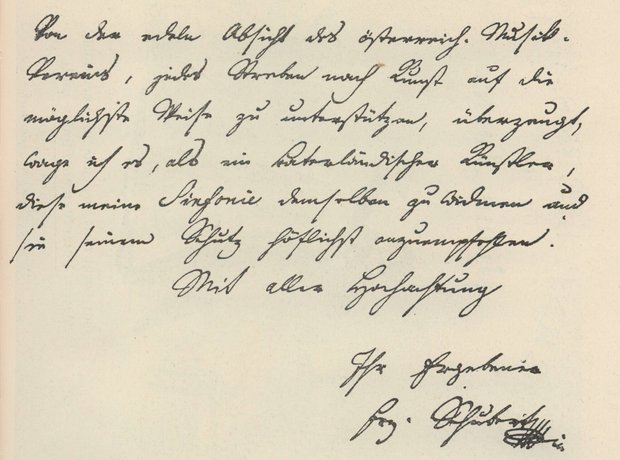
thirteen. The Great Symphony
Few Schubert fans would disagree that his ninth symphony deserves the name, the 'Corking'. The title though was given just to distinguish it from another of his symphonies which is also in the key of C (known equally the Picayune C). In a letter of March 1824, pictured, the composer did say he was preparing himself to write 'a grand symphony'.
-
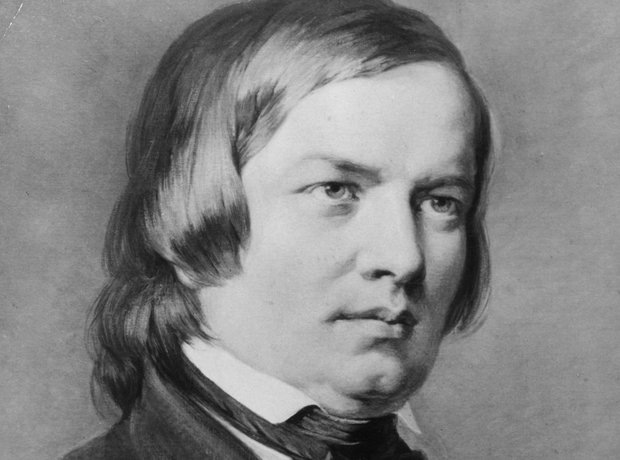
14. Schumann's discovery
Robert Schumann discovered the Great Symphony in a breast afterwards Schubert'due south death. "The riches that lay here made me tremble with excitement," he enthused. The symphony "transports the states into a globe where I cannot think ever having been before," said Schumann.
-
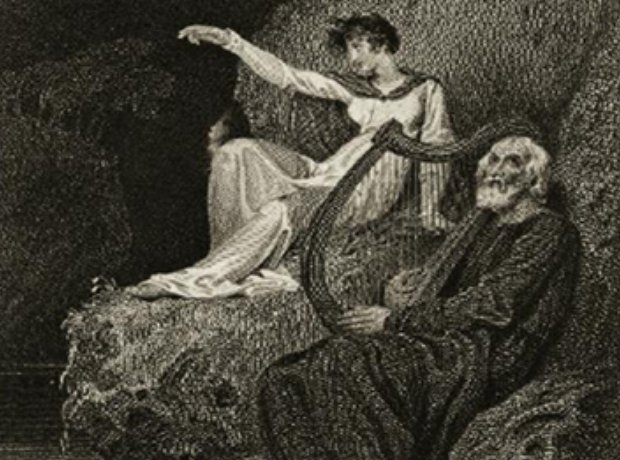
15. From Lady of the Lake to Ave Maria
Schubert's well-loved music for the Ave Maria was originally written to words from Sir Walter Scott's The Lady of the Lake. 'Ellen's Tertiary Song' did incorporate the words 'Ave Maria' only just in reference to the prayer itself. Schubert's melody has been recorded by a broad range of artists from Pavarotti to Perry Como.
-
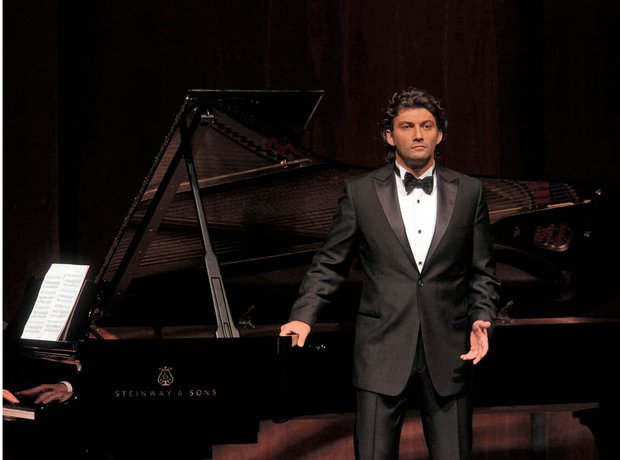
xvi. Lieder of the pack
Schubert's greatest contribution to music was in the field of 'lieder'. These 600 songs express every shade of homo emotion – tenderness, drama, even evocations of the countryside. Through them Schubert demonstrated a profound appreciation of the possibilities of the homo voice.
-
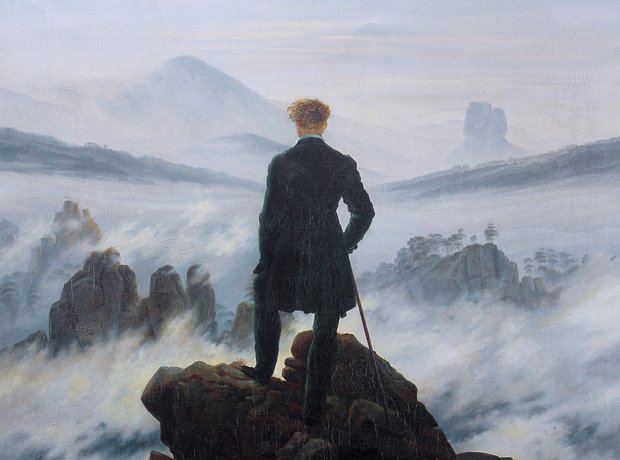
17. The Wintertime Journeying
Schubert contracted syphilis in 1822 and became seriously ill. He carried on composing though with the aforementioned unrelenting charge per unit, writing his beautiful cycle of 24 songs, 'Die Winterreise' (The Winter Journey) towards the terminate of his life.
-
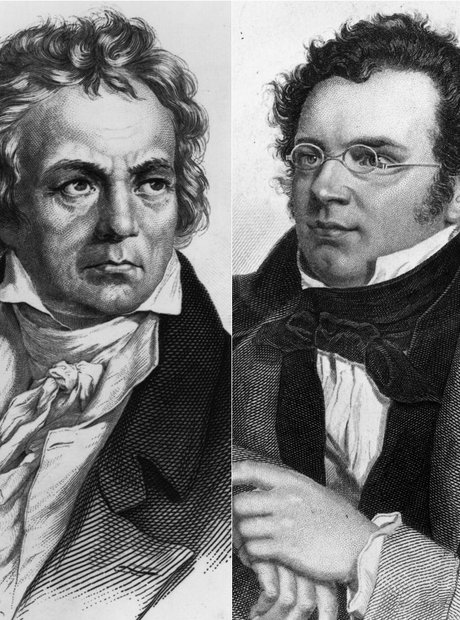
xviii. Genius and torchbearer
On his deathbed, the mighty Ludwig van Beethoven is said to have looked at some of Schubert'southward works and exclaimed, "Truly, the spark of divine genius resides in this Schubert!" In March 1827 Schubert was i of the torchbearers at Beethoven's funeral.
-
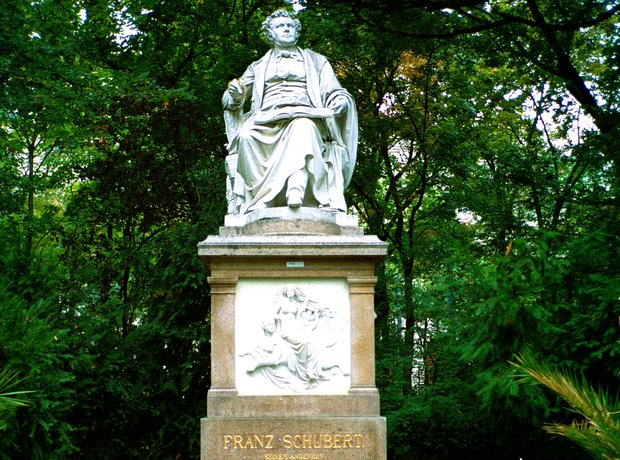
19. In Memorium Franz Schubert
Schubert died in November 1828. In 1872, a memorial was erected in Vienna's Stadtpark (pictured). In 1888, both Schubert's and Beethoven'south graves were moved to the Zentralfriedhof, where they can now be found next to those of Johann Strauss II and Johannes Brahms.
-
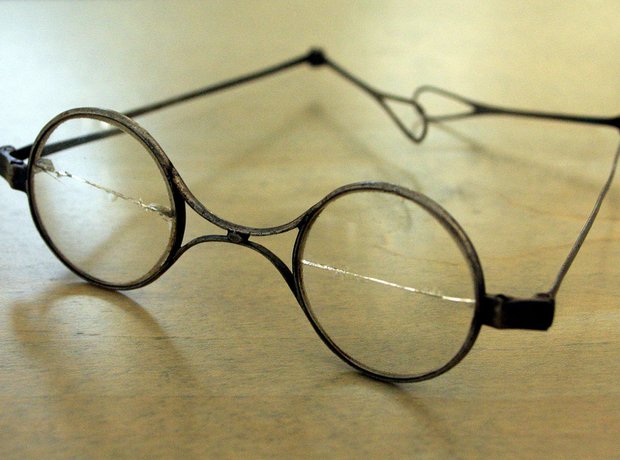
20. An all-time classical dandy
Appreciation of Schubert's music increased significantly in the decades following his expiry. Liszt, Schumann, Brahms and Mendelssohn all championed his works. Today, he is one of the world'southward most oft performed composers.
gullettgocielince71.blogspot.com
Source: https://www.classicfm.com/composers/schubert/guides/schubert-20-facts-about-great-composer/